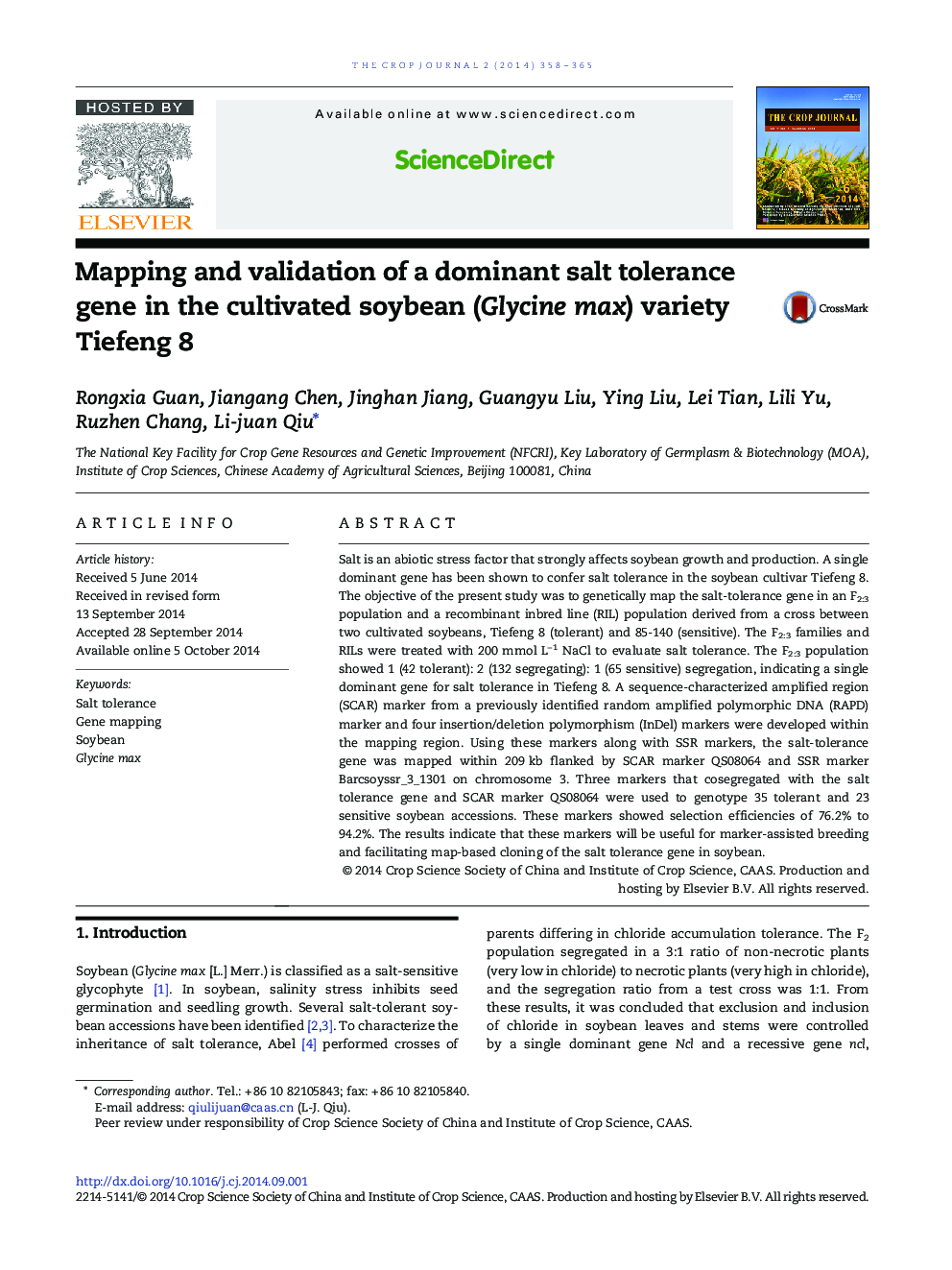| Article ID | Journal | Published Year | Pages | File Type |
|---|---|---|---|---|
| 2079471 | The Crop Journal | 2014 | 8 Pages |
Salt is an abiotic stress factor that strongly affects soybean growth and production. A single dominant gene has been shown to confer salt tolerance in the soybean cultivar Tiefeng 8. The objective of the present study was to genetically map the salt-tolerance gene in an F2:3 population and a recombinant inbred line (RIL) population derived from a cross between two cultivated soybeans, Tiefeng 8 (tolerant) and 85-140 (sensitive). The F2:3 families and RILs were treated with 200 mmol L− 1 NaCl to evaluate salt tolerance. The F2:3 population showed 1 (42 tolerant): 2 (132 segregating): 1 (65 sensitive) segregation, indicating a single dominant gene for salt tolerance in Tiefeng 8. A sequence-characterized amplified region (SCAR) marker from a previously identified random amplified polymorphic DNA (RAPD) marker and four insertion/deletion polymorphism (InDel) markers were developed within the mapping region. Using these markers along with SSR markers, the salt-tolerance gene was mapped within 209 kb flanked by SCAR marker QS08064 and SSR marker Barcsoyssr_3_1301 on chromosome 3. Three markers that cosegregated with the salt tolerance gene and SCAR marker QS08064 were used to genotype 35 tolerant and 23 sensitive soybean accessions. These markers showed selection efficiencies of 76.2% to 94.2%. The results indicate that these markers will be useful for marker-assisted breeding and facilitating map-based cloning of the salt tolerance gene in soybean.
